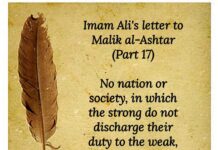Tariq Ibn Ziyad, the bold conqueror who changed the course of history
In the rich tapestry of Islamic history, few names shine as brightly as Tariq Ibn Ziyad. A remarkable commander, he led an army of faith-filled warriors across the Mediterranean, setting the stage for the Islamic conquest of Andalusia—what we know today as Spain and Portugal.
This extraordinary victory in 711 A.D. not only transformed Europe but also cemented Tariq’s place among the great heroes of Islamic civilization, alongside Khalid Ibn Al-Waleed, Salahuddeen, and Muhammad Al-Fatih.
From Humble Beginnings to Military Genius
Born into a Berber family in Morocco, Tariq’s journey from humble beginnings to a legendary military commander is nothing short of inspiring. Despite not being of Arab origin, his family embraced Islam, and his grandfather, `Abdullah, became the first Muslim in his lineage. Like other Muslim children, young Tariq learned the Qur’an and pursued knowledge, but his heart gravitated towards the military.
Under the mentorship of Moosa Ibn Nusayr, the Commander of Morocco, Tariq’s talent for leadership blossomed. His valor, intelligence, and strategic mind quickly earned him the position of governor of Tangier, a bustling Moroccan city perched on the Mediterranean—destined to be the gateway for one of history’s greatest conquests.
The Call to Andalusia: A Chance to Liberate a Kingdom
Tariq’s destiny took a turn when the people of Andalusia, suffering under the tyranny of King Ludrique, called upon the Muslims for help. With the promise of justice, fairness, and liberation, Tariq saw a golden opportunity to not only free the oppressed but also spread the noble teachings of Islam. Aided by Count Julian of Ceuta, who had his own grievances with Ludrique, Tariq prepared his forces for the bold crossing into Europe.
The Daring Voyage to Gibraltar
In the spring of 711 A.D., Tariq Ibn Ziyad led a fearless army of 7,000 Muslim warriors—mostly Berbers—across the Mediterranean Sea, landing at a place that would forever bear his name: Jabal Tariq (Gibraltar). The invasion of Andalusia had begun, and the future of Europe was about to be reshaped.
READ ALSO: The Power of Justice: How Islam combats crime with divine law
As Tariq’s forces advanced, King Ludrique, alarmed by the Muslim presence, hastily assembled a colossal army of 100,000 soldiers. But Tariq, with unshakable faith in Allah’s help, did not falter. Reinforcements from Moosa Ibn Nusayr soon brought the Muslim army to 12,000, setting the stage for one of history’s most legendary battles.
The Epic Battle of Guadalete: Underdogs Triumph Against All Odds
On the 28th of Ramadan, in 711 A.D., Tariq’s army faced off against the might of Ludrique in the Battle of Guadalete, a decisive clash that raged for eight days. Despite being outnumbered and facing a heavily equipped enemy, Tariq’s forces fought with the strength of lions, fueled by faith, discipline, and a desire for martyrdom.
On the final day, the tide turned in favor of the Muslims. Ludrique’s forces crumbled, and the once-mighty king vanished without a trace, marking the end of Visigothic rule. Tariq’s stunning victory opened the doors to the heart of Andalusia, and the Muslim forces began their historic march northward.
Conquering the Jewel of Europe
Following his triumph, Tariq wasted no time. He and his men swiftly captured key cities like Cordoba, Granada, and Malaga, with little resistance. His advance culminated in the capture of Toledo, the Visigothic capital, where he showed remarkable generosity and respect towards the local population, preserving their churches and honoring their traditions.
But Tariq’s vision extended beyond mere conquest. He saw Andalusia as a land ripe for Islam’s just rule, and he requested additional support from Moosa Ibn Nusayr to continue his mission. Moosa responded by crossing into Andalusia with an army of 18,000 soldiers, and together, they completed the liberation of the Iberian Peninsula.
Conclusion
Tariq Ibn Ziyad’s name is synonymous with courage, faith, and strategic brilliance. His conquest of Andalusia was not only a military victory but also a turning point in European history. For centuries, Muslim rule in Andalusia would usher in an era of prosperity, intellectual achievement, and cultural flourishing, contributing to the Golden Age of Islam.
Tariq’s enduring legacy can still be felt today, from the Rock of Gibraltar to the annals of history that recount his unparalleled bravery and leadership. His story is a testament to the power of faith, determination, and vision—the story of a man who changed the course of history with 7,000 warriors and an unshakable belief in the promise of victory.
For generations to come, Tariq Ibn Ziyad will remain a source of inspiration, proving that no matter the odds, faith, courage, and justice can conquer the greatest of challenges.
Follow the Neptune Prime channel on WhatsApp:
Do you have breaking news, interview request, opinion, suggestion, or want your event covered? Email us at neptuneprime2233@gmail.com





